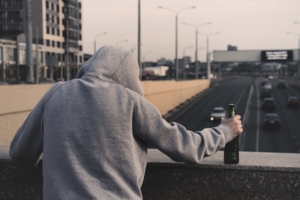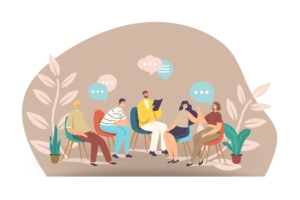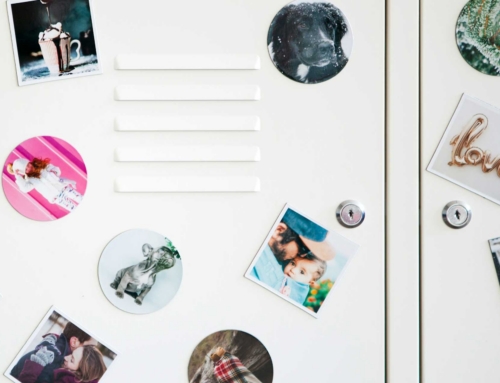 The topic of alcohol consumption and dependence is a sensitive subject. Addressing the topic with a friend or family member can lead people to push away or even sever the relationship out of denial, embarrassment, or anger.
The topic of alcohol consumption and dependence is a sensitive subject. Addressing the topic with a friend or family member can lead people to push away or even sever the relationship out of denial, embarrassment, or anger.
Yet, as both a sober person and a therapist, it is a topic I often receive questions about. People are constantly asking, “How do I know if I am drinking too much or too often?” “How do I know if I have a problem?” Thoughts such as these consume so many minds, especially in a post-pandemic world.
Statistics related to the soaring levels of alcohol use between 2019 to 2021 are staggering. According to the National Center for Drug Abuse Statistics, alcohol consumption increased by 60% during the COVID-19 lockdowns. Further, the NCDAS reports that 1 in 10 Americans over the age of twelve has an alcohol use disorder. These are sobering statistics indeed!
What is alcohol dependence?
How then, do you know if your alcohol consumption is too much? It is so easy to justify our alcohol use with statements like, “It’s been a stressful day,” “I just need to wind down or chill out after work (or after the kids go to bed),” or even, “I just need a drink to relax or to be more social/fun.”
All of these are common excuses for a mindset toward alcohol that may be troubling. The reason for this is that as soon as we start using alcohol as a coping strategy, our brain starts to pair alcohol with a dopamine release. This makes the neuro pathways between alcohol and relaxing/de-stressing in our brain stronger and stronger so that every time you become stressed or need to relax, your brain craves alcohol for that dopamine release.
This can happen gradually over many years or more rapidly over months during a difficult life season. It’s a slippery slope and we usually don’t realize we are becoming reliant on alcohol until we are – it’s a deceptive road.
 Addiction is not merely about a lack of willpower, as many misunderstand it to be; it affects us on a biological level too. Do you find yourself saying or thinking things like, “I need a drink?” If so, it is worth considering whether your drinking may be something you want to take a closer look at and seek help for. This could be an early sign that addiction is beginning to get a foothold in your life.
Addiction is not merely about a lack of willpower, as many misunderstand it to be; it affects us on a biological level too. Do you find yourself saying or thinking things like, “I need a drink?” If so, it is worth considering whether your drinking may be something you want to take a closer look at and seek help for. This could be an early sign that addiction is beginning to get a foothold in your life.
We also often think alcohol dependence looks a certain way: a DUI on the person’s record, or the loss of a job, friends, or even housing. True, any of these things could be present in the life of someone with alcohol dependence. However, there are a growing number of people who hold down highly successful jobs while simultaneously being dependent on alcohol.
In fact, alcohol dependence is more and more common in people who have high-stress jobs. When high-functioning people are dependent on alcohol, they will often find ways to incorporate it into everyday life: cocktails at a business lunch, beers tailgating or “pre-gaming,” post-work happy hour, after-dinner drinks, a nightcap in bed, or even wine during playdates. There is suddenly always an excuse or an occasion to drink. It can start to feel like the only way you can have fun or relax is with alcohol.
Tools to measure alcohol dependence.
Just as there are inventories to help us determine if someone exhibits symptoms related to depression or anxiety, there are inventories that can help give you a more objective perspective about whether you may have an unhealthy relationship with alcohol or not. One of those inventories is called the CAGE assessment (Ewing, 1984). I often use this with people because I enjoy the brevity of it. Read the following questions and honestly respond “yes” or “no” to each:
- Have you ever felt you should cut down on your drinking?
- Have people annoyed you by criticizing your drinking?
- Have you ever felt bad or guilty about your drinking?
- Have you ever had a drink first thing in the morning to steady your nerves or to get rid of a hangover (eye-opener)?
 Did you answer “yes” to any of these? If so, how many? The way the CAGE assessment is scored, if you answered “yes” to two or more of these questions, you may have a problem with alcohol.
Did you answer “yes” to any of these? If so, how many? The way the CAGE assessment is scored, if you answered “yes” to two or more of these questions, you may have a problem with alcohol.
However, the subtext of this inventory recommends that providers lower the threshold to one positive answer. Thus, if you were able to answer “yes” to any of these questions, it would be a good idea to take a look at your relationship with alcohol to determine if is a helpful or positive one.
There are many other tools available to measure alcohol dependence. Some of the other common inventories, besides the CAGE, are the AUDIT and MAST. All three of these assessments can be found here: https://thelighthousect.com/alcohol-use-disorder-screening-tools/ (The Lighthouse Recovery Services, 2019).
I think I may have a problem, what should I do?
If you resonate with any of what has been said thus far, or even want more information, counseling is always a good place to start! As with other unhealthy behaviors, drinking is merely a symptom of what’s going on with that person. WHY do you feel the need to drink every day or have several drinks on a weekend night? WHY do you need to have alcohol to help you relax?
These answers will vary for everyone, and I would guess that each person has several answers for each as well. Counseling can not only help you discover why you are engaging in these unhelpful behaviors, but it can also teach you healthy coping strategies when the temptation to drink is present.
When you want to reach for the bottle, maybe you can start reaching for some flavored sparkling water and an adult coloring book instead. Busying your hands and moving your body are extremely helpful, especially when you are trying to cut down on or cut out alcohol in your life.
 Often, we drink to avoid or try to numb feeling certain emotions. Counseling can help you learn what emotions you are trying to avoid and how to identify and sit with those emotions when they come, rather than use alcohol (or something else) to avoid feeling them.
Often, we drink to avoid or try to numb feeling certain emotions. Counseling can help you learn what emotions you are trying to avoid and how to identify and sit with those emotions when they come, rather than use alcohol (or something else) to avoid feeling them.
Positive social support is one of the main factors in successfully recovering from alcohol dependence. Having a team cheering you on or being on the journey with you is vital. It can be extremely helpful to allow you to feel less isolated as you recover because recovery can feel very lonely.
There is a sober support system easily found, even on the Internet. Perhaps you just want more information about alcohol’s effect on the body, emotions, etc.? Or maybe you want to read about others’ journeys from alcohol dependence to freedom from the bondage of alcohol.
I have provided some programs, books, and resources below that have helped me on my own sober journey. Note, these are not specifically Christian stories or resources, but just some ideas to get you going. Everyone’s journey is different and these resources are just some that are out there.
Lastly, it is vital to consider recovery from a holistic standpoint. Therefore, it is important to see your primary care physician when considering stopping alcohol if you may be alcohol dependent or have a substance use disorder.
Your doctor will have medically-based resources that are integral to a safe recovery. It can be dangerous to go “cold turkey” if you have an alcohol use disorder and some people will require medical care and supervision to detox safely.
Resources:
Support Programs
The Alcohol Experiment- “This Naked Mind” (Online support, 30-day challenge/program).
Alcoholics Anonymous (AA) (there are dozens and dozens of groups that meet Online and in person at all times of the day – you don’t even have to turn your camera on if you don’t want to!)
Celebrate Recovery (a 12-step, Bible-based addiction support group, first started out of Saddleback Church in Orange County, CA).
**You can also talk to your primary care physician or counselor for recommendations on detox facilities in your area. Many are covered in part or whole by insurance now.
Books/Audiobooks:
This Naked Mind – Annie Grace
Alcohol Explained – William Porter
Alcohol Lied to Me – Craig Beck
Mrs. D is going Without – Lotta Dann
The Sober Diaries – Clare Pooley
The Unexpected Joy of Being Sober – Catherine Gray
Podcasts:
This Naked Mind Podcast
Love Sober
“Drunk”, Courtesy of Rebcenter-Moscow, Pixabay.com, CC0 License; “Fear of Abandonment”, Courtesy of Rebcenter Moscow, Pixabay.com, CC0 License; “Enjoying the View”, Courtesy of PublicCo, Pixabay.com, CC0 License; “Conversation”, Courtesy of RosZie, Pixabay.com, CC0 License










